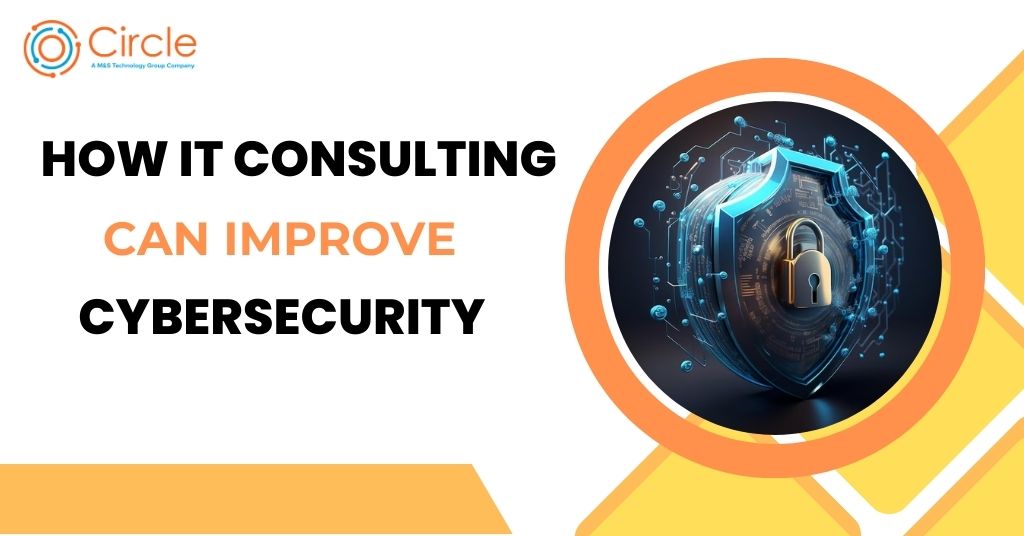
In today’s hyper-connected world, where data is the new currency, cyber threats loom large, casting a shadow over businesses of all sizes. Small businesses, often lacking the resources and expertise of their larger counterparts, are particularly vulnerable to these digital predators. But amidst the fear, a shining light emerges – IT consulting services.
IT consultants act as modern-day knights in shining armor, wielding their expertise and resources to fortify the digital walls of small businesses and safeguard their valuable assets. Let’s delve into the specific ways in which IT consulting empowers small businesses to thrive in the face of cyber threats.
Understanding Cybersecurity
Cybersecurity is a critical aspect of our increasingly digitized world, encompassing a wide range of practices and technologies designed to protect systems, networks, and data from cyber threats. In this comprehensive overview, we’ll delve into the fundamental concepts, key components, and evolving challenges of cybersecurity.
Let’s explore How IT Consulting Companies can improve cybersecurity for small Businesses.
1. Customized IT Solutions for Your Business
Tailoring Cybersecurity Measures
Understanding Business Needs: IT consulting begins with a thorough analysis of the specific needs and vulnerabilities of each small business. This personalized approach ensures that cybersecurity measures are not generic but precisely aligned with the business’s unique characteristics.
Strategic Resource Allocation: Customization facilitates strategic resource allocation. Instead of adopting a one-size-fits-all approach, IT consultants identify and prioritize the most critical areas for cybersecurity improvement, optimizing the use of limited resources for maximum impact.
Proactive Risk Management
Comprehensive Risk Assessment: IT consultants conduct comprehensive risk assessments to identify potential vulnerabilities within the digital infrastructure. This proactive approach enables small businesses to address vulnerabilities before they can be exploited by cybercriminals.
Prioritizing Critical Risks: Understanding the risks allows for strategic management. Small businesses can focus on mitigating the most critical risks, minimizing the likelihood and impact of potential cyber threats.
2. Cost-Effective IT Management
Maximizing Resources
Optimizing Budgets: Small businesses often operate with limited budgets. IT consultants provide recommendations for cost-effective cybersecurity solutions, ensuring maximum protection without unnecessary financial strain.
Efficient Resource Utilization: Through IT consulting, small businesses can avoid unnecessary expenditures by implementing solutions that precisely align with their cybersecurity needs. This efficient use of resources is crucial for maintaining financial viability.
Scalability for Growth
Adapting to Business Growth: As small businesses expand, their digital footprint evolves. IT consultants design scalable cybersecurity strategies, accommodating the changing needs of the business and supporting growth without compromising security.
Future-Proofing Security Measures: Scalability ensures that cybersecurity measures can adapt to the evolving landscape of cyber threats. This future-proofing is essential for maintaining effective protection as the business expands and encounters new challenges.
3. Improved Security and Data Protection
Employee Training and Awareness Programs
Addressing Human Vulnerabilities: Human error remains a significant factor in cybersecurity incidents. IT consultants advocate for and implement ongoing employee training and awareness programs to educate staff about potential threats, safe online practices, and their role in maintaining a secure digital environment.
Cultivating a Cybersecurity Culture: Continuous training fosters a culture of cybersecurity within the organization, where employees become an active line of defense against potential threats.
Incident Response Planning
Swift and Effective Response: Acknowledging that no system is entirely immune to cyber threats, IT consultants assist small businesses in developing robust incident response plans. These plans ensure a swift and effective response in the event of a security breach, minimizing potential damages and expediting the recovery process.
Learning from Incidents: Incident response planning includes post-event analysis to learn from security incidents. This iterative process enhances the overall cybersecurity strategy by incorporating lessons learned.
Regular Security Audits
Continuous Improvement: Regular security audits conducted by IT consultants evaluate the effectiveness of existing measures, identify vulnerabilities, and make necessary adjustments to the security strategy. This continuous improvement is crucial for staying ahead of evolving cyber threats.
Ensuring Compliance: Security audits also ensure that small businesses remain in compliance with data protection laws and industry regulations, mitigating legal risks associated with non-compliance.
3. Access to the Latest Technology and Trends
Keeping Pace with Technological Advancements
Guidance on Technological Adoption: The dynamic nature of cyber threats requires small businesses to stay abreast of technological advancements. IT consultants guide adopting the latest security technologies, ensuring businesses remain at the forefront of cybersecurity defense.
Seamless Integration: Integrating new technologies can be challenging. IT consultants facilitate the seamless integration of security tools into existing infrastructures, minimizing disruptions and maximizing the effectiveness of the overall cybersecurity strategy.
Leveraging Threat Intelligence
Staying Ahead of Evolving Threats: Cyber threats evolve continuously. IT consultants leverage threat intelligence to stay ahead of the curve, proactively updating security measures to defend against emerging threats and keeping small businesses a step ahead of cybercriminals.
Real-Time Monitoring: Threat intelligence is often coupled with real-time monitoring of network activities, allowing for prompt identification and response to suspicious behavior, reducing the window of opportunity for cyber threats.
5. Increased Efficiency and Productivity
Streamlining Operations
Optimizing Workflows: A well-designed cybersecurity strategy streamlines operations by optimizing workflows and reducing potential disruptions caused by security incidents.
Minimizing Downtime: Effective cybersecurity measures minimize downtime caused by security breaches, ensuring that small businesses can operate smoothly and maintain productivity.
Fostering Trust and Credibility
Enhancing Reputation: A robust cybersecurity posture enhances the reputation of small businesses. Customers and partners trust organizations that prioritize the security and protection of sensitive information.
Cultivating Credibility: Compliance with data protection laws, coupled with proactive cybersecurity measures, cultivates credibility within the industry. Small businesses become trusted entities that take cybersecurity seriously.

IT consulting Companies play a pivotal role in elevating cybersecurity for small businesses. From customized solutions to cost-effective management, improved security, access to cutting-edge technology, and increased efficiency, the impact is comprehensive and strategic. As small businesses continue to face evolving cyber threats, collaboration with IT consultants becomes not only a necessity but a strategic imperative for sustained success in the digital landscape. Through this partnership, small businesses can fortify their defenses, adapt to changing circumstances, and thrive in an environment where cybersecurity is paramount.
